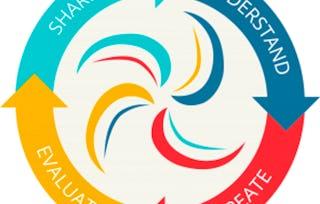Engineering courses often focus on technical skills and processes, leaving students with few examples of how to apply these skills in the real world. With "Introduction to Socially Engaged Design," you'll learn about this essential engineering and design framework, strengthening the connection between your work and its impact on individuals, societies, and the environment.

Introduction to Socially Engaged Design
Ends soon: Gain next-level skills with Coursera Plus for $199 (regularly $399). Save now.

Recommended experience
What you'll learn
Learn how the Socially Engaged Design model can increase understanding of the design processes.
Assess societal connections to inform broader, inclusive, and sustainable design solutions
Apply socially engaged design principles to real-world projects
Skills you'll gain
Details to know

Add to your LinkedIn profile
21 assignments
See how employees at top companies are mastering in-demand skills

There are 5 modules in this course
In this module you will explore the intersection of technical design, engineering, and social factors, focusing on equity and societal needs. You will examine the Socially Engaged Design (SED) Process to navigate complex engineering challenges, learn its structure, and apply the SED principles through case studies showcasing the societal impact of engineering.
What's included
6 videos7 readings3 assignments5 discussion prompts
In this module you will understand how to employ stakeholder maps to identify project influences and discover the impact of power dynamics and personal bias on stakeholder interactions.
What's included
6 videos12 readings6 assignments4 discussion prompts
In this module you will learn the process of identifying and defining engineering needs and design opportunities, and understand how to distinguish between and gather stakeholder requirements and engineering specifications. In addition you will examine how personal biases can affect problem framing.
What's included
6 videos9 readings5 assignments4 discussion prompts
In this module you will understand the role of tools and strategies in ideation to create innovative design solutions. You'll survey best practices in generating and selecting ideas, while examining how identity and power dynamics influence the ideation process.
What's included
5 videos6 readings2 assignments4 discussion prompts
In this final module you will dig into the Develop and Realize stages as critical analysis processes for validating and verifying design concepts. This module defines prototyping as an iterative tool, focuses on stakeholder engagement in development, discusses varied validation strategies, and addresses the influence of personal and societal factors on idea evolution.
What's included
7 videos10 readings5 assignments2 discussion prompts
Instructors


Offered by
Explore more from Mechanical Engineering
 Status: Free Trial
Status: Free TrialUniversity of California San Diego
 Status: Free Trial
Status: Free Trial Status: Preview
Status: PreviewUniversity of Virginia
 Status: Preview
Status: PreviewDuke University
Why people choose Coursera for their career





Open new doors with Coursera Plus
Unlimited access to 10,000+ world-class courses, hands-on projects, and job-ready certificate programs - all included in your subscription
Advance your career with an online degree
Earn a degree from world-class universities - 100% online
Join over 3,400 global companies that choose Coursera for Business
Upskill your employees to excel in the digital economy
Frequently asked questions
To access the course materials, assignments and to earn a Certificate, you will need to purchase the Certificate experience when you enroll in a course. You can try a Free Trial instead, or apply for Financial Aid. The course may offer 'Full Course, No Certificate' instead. This option lets you see all course materials, submit required assessments, and get a final grade. This also means that you will not be able to purchase a Certificate experience.
When you purchase a Certificate you get access to all course materials, including graded assignments. Upon completing the course, your electronic Certificate will be added to your Accomplishments page - from there, you can print your Certificate or add it to your LinkedIn profile.
Yes. In select learning programs, you can apply for financial aid or a scholarship if you can’t afford the enrollment fee. If fin aid or scholarship is available for your learning program selection, you’ll find a link to apply on the description page.
More questions
Financial aid available,



